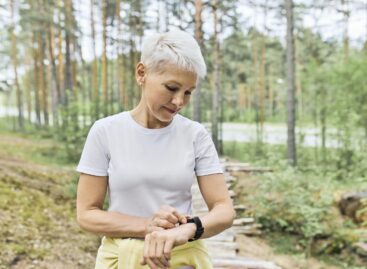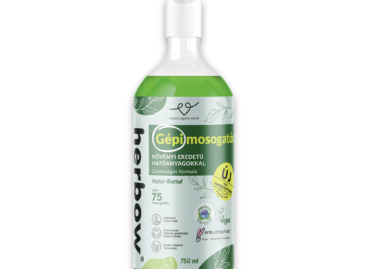Small steps for a sustainable world
On 4 October the Canadian Chamber of Commerce in Hungary hosted the international Food and Water Sustainability Business Forum in Budapest.

Dr. Judit Lovas
managing director
Canadian Chamber of Commerce in Hungary
The event took place on the roof terrace of Budapest Marriott Hotel, where Dr Judit Lovas, executive director of the chamber and Caroline Charette, the Ambassador of Canada to Hungary welcomed participants.
Instead of extremities

Dr. Erzsébet Némedi
Expedit Nodum
Dr Erzsébet Némedi, biotechnologist and nutrition specialist, and the founder or Expedit Nodum was the first speaker. She pointed it out that even if many say that we need to switch to eating plant-based proteins instead of animal-based ones globally, we should pay special attention to the quality of new and alternative proteins. We need much more proof about what is happening exactly in the human body with these alternative proteins, but we don’t have enough information at the moment.

Dr. habil. Sándor Kukovics
professzor
Dr habil. Sándor Kukovics, professor of the Research Institute of Animal Breeding and Nutrition gave the next presentation. He said it isn’t good if we stick with our current diet, but it would also be bad to start following a fully plant-based vegan diet. In his view extremities are never maintainable. Only 65% of the Hungarian population are eating vegetables on a daily basis – this fact indicates how far we are from making drastic changes and eating plant-based only.
Technology and the human factor

Bernadett Kiss-Tóth
nutrition specialist
Nutrition specialist Bernadett Kiss-Tóth stepped on the podium next, and she told that the food industry would really be more sustainable if we could reach a state where three quarters of the food consumed would be plant-based, and only the rest would be animal-based. It would be a big step forward, if we could produce foods and ingredients that are absorbed better.

Zoltán Gazsi
managing director
Eisberg Hungary
Zoltán Gazsi, managing director of Eisberg Hungary Kft. is working hard to turn Eisberg into the leading salad company in Hungary. This is why the firm is developing its own technological innovations for more efficient vegetable farming. The managing director believes that partnerships and the human factor are even more important than this.
Byproducts in a main role

Júlia Dalmadi
food futurist
Transfoodmission
Food futurist and founder of Transfoodmission Júlia Dalmadi spoke about fighting food waste and promoting upcycling. She told that very often the food industry claims it is consumers who purchase too many food products, but when they throw food away, they are relying on the expiry date; at the same time 20% of the production capacity is unutilised. In order to turn food industry byproducts into valuable and consumable food, Transfoodmission launched a matchmaking platform for implementing cooperation projects, bringing together partners who would use their know-how and free capacities to make edible food from byproducts.
Dimensions of sustainability

Abou Diallo
product application
manager
Pannonia Bio
Pannonia Bio Zrt. is Europe’s biggest biorefinery operating at a single site, which focuses on producing alternative proteins in the future, but is also investing heavily in both the renewable energy sector and the biorefinery and biogas production segment, in Hungary and worldwide. In his presentation product application manager Abou Diallo gave an insight into healthy and sustainable eating. He called attention to the importance of food planning, using functional ingredients and adopting the best processing technologies, as with the help of these we can make the Earth’s population eat well, and at the same time in a sustainable fashion too.

Alexander Shumkov
director of customer excellence and business development
Xylem
Alexander Shumkov, director of customer excellence and business development at Xylem explained that traditional irrigation methods waste up to 50% of the water used. Smart automatic irrigation is cost-efficient, as the intensity of water use can be adjusted to suit the given soil and weather conditions.

Ferenc Hódos
strategic director
Pannonia Bio
Ferenc Hódos, strategic director of Pannonia Bio Zrt. closed the forum, who told in his speech that we are living in revolutionary times as regards protein production and consumption. Pannonia Bio Zrt. has made breakthroughs that can lay the groundwork for the next decades, so the company is ready for this revolution. //
This article is available for reading in Trade magazin 2022/11
Related news
Protein, gut health and mental wellbeing – these trends will shape global food innovation in 2026
🎧 Hallgasd a cikket: Lejátszás Szünet Folytatás Leállítás Nyelv: Auto…
Read more >Herbow Dishwasher Detergent
🎧 Hallgasd a cikket: Lejátszás Szünet Folytatás Leállítás Nyelv: Auto…
Read more >









